Highlights
- Step-by-step DevOps roadmap - from Linux to Kubernetes, CI/CD, and Cloud.
- Hands-on labs - learn by doing in real browser-based environments.
- Kubernetes mastery - follow the full Kubeastronaut Journey (KCNA → CKA → CKAD → CKS → KCSA).
- Real-world scenarios - practice with KodeKloud Engineer challenges.
- AI-assisted learning - KodeKloud AI tools personalize and verify your content.
- Certification-ready courses - Docker, Terraform, AWS, and Linux Foundation paths.
- Career-focused learning - build your portfolio, prep for interviews, and start freelancing.
- Free resources included - eBooks, YouTube tutorials, infographics, and blogs.
- Global DevOps community - learn, share, and grow together.
Introduction: Why DevOps Is the Skill to Master in 2025
If you had to pick one skill that defines the modern IT era, it would be DevOps.
From startups deploying code a hundred times a day to global enterprises embracing automation, DevOps has become the invisible engine behind every high-performing tech team.
But here’s the catch - DevOps isn’t a single tool or technology. It’s a mindset, a set of practices, and a combination of skills that help developers and operations teams deliver faster, safer, and more reliable software. And as we step into 2025, DevOps is evolving faster than ever, blending with AI, security automation, and cloud-native technologies.
Yet for beginners, this evolution can feel overwhelming.
Should you start with Docker or Linux? Learn Jenkins or Kubernetes first? Which cloud platform should you pick? And how do you gain practical, hands-on experience if you’re just starting out?
That’s exactly where KodeKloud bridges the gap.
Every lesson, from the simplest Linux command to advanced Kubernetes networking, is paired with real, interactive labsthat run right in your browser. No local setup. No theory overload. Just pure, hands-on learning.
Whether you’re a student aiming to enter the DevOps field, a developer transitioning into cloud engineering, or an IT professional trying to stay relevant, this guide will walk you through step-by-step DevOps tutorials for 2025 - all powered by KodeKloud’s structured courses, labs, and community resources.
We’ll start from the absolute basics - learning Linux and version control - and gradually build up to mastering tools like Docker, Kubernetes, Jenkins, and Terraform.
You’ll also discover how to build real-world experience, earn certifications, and prepare for DevOps job interviewsusing KodeKloud’s all-in-one ecosystem.
So grab a coffee, open your browser, and let’s get started.
Your DevOps journey for 2025 begins right here.
What Is DevOps and Why It Matters in 2025
Before we dive into the step-by-step tutorials, let’s take a moment to understand what DevOps really means - and why it’s the skill that defines the future of tech in 2025.
From Silos to Synergy
In traditional software development, two worlds used to exist:
Developers wrote the code, and Operations deployed and maintained it.
The problem? These teams often worked in silos - developers pushed features fast, while operations teams focused on stability and uptime. This disconnect led to bottlenecks, delays, and blame games whenever something broke in production.
It’s not a job title or a single tool. It’s a culture - a mindset that brings together development and operations into one collaborative workflow.
The goal: deliver better software, faster, and more reliably.
The Modern DevOps Era (2025 and Beyond)
Fast-forward to 2025, and DevOps has evolved beyond automation scripts and CI/CD pipelines.
It’s now the foundation of cloud-native engineering - integrating tools, practices, and philosophies that enable continuous delivery at scale.
Here’s what’s shaping the DevOps landscape in 2025:
| Trend | What It Means | Why It Matters |
|---|---|---|
| AI-Powered DevOps (AIOps) | Machine learning tools detect issues and optimize deployments automatically. | Reduces downtime, enhances efficiency, and predicts failures before they happen. |
| Cloud-Native Everything | Applications are built and deployed using containers, microservices, and orchestration. | Enables agility, scalability, and portability across cloud providers. |
| Shift-Left Security (DevSecOps) | Security is integrated early in the development lifecycle. | Prevents vulnerabilities before they reach production. |
| GitOps and Automation | Infrastructure and app deployments are driven by Git repositories. | Makes operations auditable, repeatable, and version-controlled. |
| Platform Engineering | Teams build reusable internal platforms to standardize DevOps workflows. | Simplifies developer experience and reduces operational complexity. |
That’s why organizations are seeking engineers who can think beyond individual tools and understand the big picture.
So Where Does KodeKloud Fit In?
To master DevOps in 2025, you can’t rely on theory alone - you need hands-on practice.
KodeKloud’s platform is designed exactly for this new era of DevOps. It offers a guided progression from fundamentals to advanced topics with interactive labs, real scenarios, and career-ready projects.
You’ll move from learning Linux basics to deploying microservices on Kubernetes, automating infrastructure with Ansible, setting up CI/CD pipelines, and even exploring AI-assisted DevOps with tools like KodeKloud AI.
In short - if you want to learn DevOps the way professionals actually work in 2025, KodeKloud gives you the roadmap, tools, and playground to do it.
The Step-by-Step DevOps Learning Path (2025 Edition)
Learning DevOps isn’t about jumping straight into Kubernetes or Terraform.
It’s about building a strong foundation - one skill at a time - and connecting the dots between coding, infrastructure, automation, and cloud.
To help you learn DevOps the right way, here’s a step-by-step roadmap built around KodeKloud’s courses, labs, and hands-on projects.
Each step ensures you don’t just “watch tutorials” - you learn by doing.
Step 1: Start with Linux - Your DevOps Ground Zero
Every DevOps engineer must speak the language of servers, and that language is Linux.
From managing files and processes to configuring networking and permissions, Linux forms the backbone of every DevOps workflow.
What You’ll Learn:
Basic commands, file systems, user management, networking, and process handling.
KodeKloud Courses:
Practical Labs:
Practice live in KodeKloud’s in-browser Linux terminals - no installation required.
Step 2: Master Git and Version Control
Before automation, comes control.
Understanding Git helps you collaborate, track changes, and manage infrastructure as code.
What You’ll Learn:
Git basics, branching strategies, merges, and GitHub workflows.
KodeKloud Courses:
Pro Tip:
Try creating your own GitHub portfolio to showcase your learning journey - each lab and project counts.
Step 3: Learn Scripting - Automate Repetitive Tasks
A great DevOps engineer doesn’t just execute commands - they automate them.
Scripting with Bash (and later Python) is your first step into automation.
What You’ll Learn:
Shell scripting fundamentals, loops, conditionals, and file operations.
KodeKloud Courses:
Try This:
Write a Bash script that automates user creation or log cleanup - and run it inside a KodeKloud lab.
Step 4: Understand Networking and System Fundamentals
Networking knowledge is what separates great DevOps engineers from good ones.
You’ll need to know how systems communicate, how ports work, and how DNS and routing affect deployments.
What You’ll Learn:
IP addressing, DNS, ports, firewalls, and troubleshooting.
KodeKloud Courses:
Extra Resource:
Check out the KodeKloud Networking 101 eBook and infographics for quick visual learning.
Step 5: Get Hands-On with Docker and Containers
Containers are at the heart of modern DevOps.
Docker lets you package applications and their dependencies so they run reliably anywhere.
What You’ll Learn:
Docker architecture, images, containers, volumes, and registries.
KodeKloud Courses:
Practical Lab:
Build your first Docker image, push it to Docker Hub, and run it across multiple containers.
Step 6: Learn Kubernetes - The Heart of DevOps in 2025
If Docker is the engine, Kubernetes is the control tower.
It automates deployment, scaling, and management of containerized apps - and is essential for every DevOps engineer.
What You’ll Learn:
Pods, Deployments, Services, ConfigMaps, Secrets, Ingress, and Networking.
KodeKloud Courses:
- Kubernetes for the Absolute Beginners
- Certified Kubernetes Administrator (CKA)
- Certified Kubernetes Security Specialist (CKS)
Free Learning Resources:
Step 7: Automate Infrastructure with Ansible
Manual configuration is outdated.
Ansible helps you automate infrastructure provisioning and app deployment using simple YAML playbooks.
What You’ll Learn:
Playbooks, roles, inventory, variables, and configuration management.
KodeKloud Courses:
Lab Tip:
Try automating a web server deployment - you’ll understand the real magic of IaC (Infrastructure as Code).
Step 8: Build Continuous Integration/Delivery (CI/CD) Pipelines
This is where your DevOps foundation becomes production-ready.
You’ll learn to automate builds, tests, and deployments using CI/CD tools.
What You’ll Learn:
Jenkins pipelines, GitHub Actions, webhooks, and automated testing.
KodeKloud Courses:
Mini Project:
Build a CI/CD pipeline for a Node.js app using Jenkins + Docker.
Step 9: Learn Cloud Platforms - AWS, Azure, or GCP
No DevOps journey is complete without the cloud.
You’ll need to know how to deploy, scale, and monitor infrastructure in the cloud environment.
What You’ll Learn:
Compute, storage, networking, IAM, and managed Kubernetes (EKS, AKS, GKE).
KodeKloud Courses:
Resource:
Explore KodeKloud’s Learn by Doing AWS with Terraform labs for real-world experience.
Step 10: Monitor, Secure, and Observe Everything
DevOps doesn’t end at deployment - it continues with monitoring, security, and observability.
These skills ensure your systems are resilient, secure, and always improving.
What You’ll Learn:
Prometheus, Grafana, ELK Stack, and Kubernetes Security.
KodeKloud Courses:
- Monitoring and Observability - Prometheus Certified Associate
- Compliance and Security Frameworks (KCSA)
- DevSecOps - Kubernetes DevOps & Security
- CompTIA Security+
- Microsoft Azure Security Technologies(AZ-500)
End Goal:
By the time you finish these 10 steps, you’ll have a solid foundation in DevOps - not just theoretically, but practically. You’ll be able to design CI/CD pipelines, manage Kubernetes clusters, automate infrastructure, and confidently apply for junior DevOps roles or certifications.
Learn DevOps the Right Way - Hands-On First
Let’s be honest - you can’t read your way into becoming a DevOps engineer.
DevOps isn’t just about memorizing commands or definitions; it’s about understanding how systems behave when you deploy, scale, or break them.
That’s why the most effective DevOps learning strategy is doing before memorizing.
And that’s exactly what KodeKloud was built for.
The Problem with Traditional Learning
Most tutorials or YouTube playlists stop at theory. You learn what Docker or Kubernetes is, but you never get to actually touch it - not until you’ve spent hours setting up your environment or debugging version mismatches.
That’s where motivation fades for many beginners. You’re stuck watching, not doing.
The KodeKloud Difference
KodeKloud flips that traditional approach upside down.
Every single course - from Linux basics to Kubernetes and Terraform - is paired with interactive, browser-based labs that let you learn by doing from the very first lesson.
No setup, no installation, no downloads.
Just open your browser, and you’re inside a live environment with real tools - ready to practice.
Here’s how this hands-on model transforms learning:
| Feature | What You Get at KodeKloud |
|---|---|
| Real Environments | You’re not using simulators - you’re working on real systems. |
| Guided Labs | Each task is explained step-by-step with hints, so you learn why something works. |
| Instant Feedback | Every command you run is verified instantly, so you know if you’re on the right track. |
| Progressive Challenges | Tasks get harder as you advance, mirroring real-world DevOps complexity. |
KodeKloud Engineer: The DevOps Playground
If you’re serious about applying what you’ve learned, KodeKloud Engineer (KKE) is your next step.
Think of it as a DevOps simulation platform - a safe space to solve real-world engineering problems.
- You’re given a real scenario, like “configure a CI/CD pipeline for a new app” or “troubleshoot a failing Kubernetes deployment.”
- You work in a real production-like environment - not mock quizzes.
- You practice problem-solving, not just tool commands.
Each challenge comes with automated validation, so you can check whether your solution meets professional standards.
It’s like doing real DevOps work - minus the production stress.
Why Hands-On Learning Works
When you build and break things in a controlled environment, you start thinking like an engineer.
You gain instinct - the ability to predict, debug, and optimize - which no amount of reading can replace.
Hands-on learning ensures that when you land your first DevOps role, you’ll already be comfortable working in Linux terminals, managing Kubernetes clusters, deploying with Jenkins, and writing infrastructure as code.
By the time you complete a few KodeKloud Engineer challenges, you’ll realize something powerful:
You’re not just learning DevOps - you’re becoming a DevOps engineer.
Free Learning Resources from KodeKloud
One of the biggest challenges for beginners stepping into DevOps is figuring out where to start - and how to learn without breaking the bank.
That’s exactly why KodeKloud has made a wide range of free, high-value resources available to help anyone start their DevOps journey confidently.
Whether you’re trying to understand Linux basics, Docker commands, or Kubernetes architecture, these resources will help you learn step by step, at your own pace, without needing to purchase a single course.
Let’s explore them 👇
1. Free Labs - Learn by Doing, Instantly
If there’s one thing that makes KodeKloud truly stand out, it’s the interactive, browser-based labs - and the best part is, you can start many of them for free.
These free labs give you access to real environments where you can experiment, break things, and learn by actually doing - not just watching. Whether you’re running your first Linux command or deploying a Docker container, KodeKloud’s lab interface makes it simple, smooth, and beginner-friendly.
Each lab runs directly in your browser, so there’s no setup, no installation, and no system requirements. You can start practicing DevOps skills anytime, anywhere, even from a lightweight laptop.
Popular Free Labs for Beginners
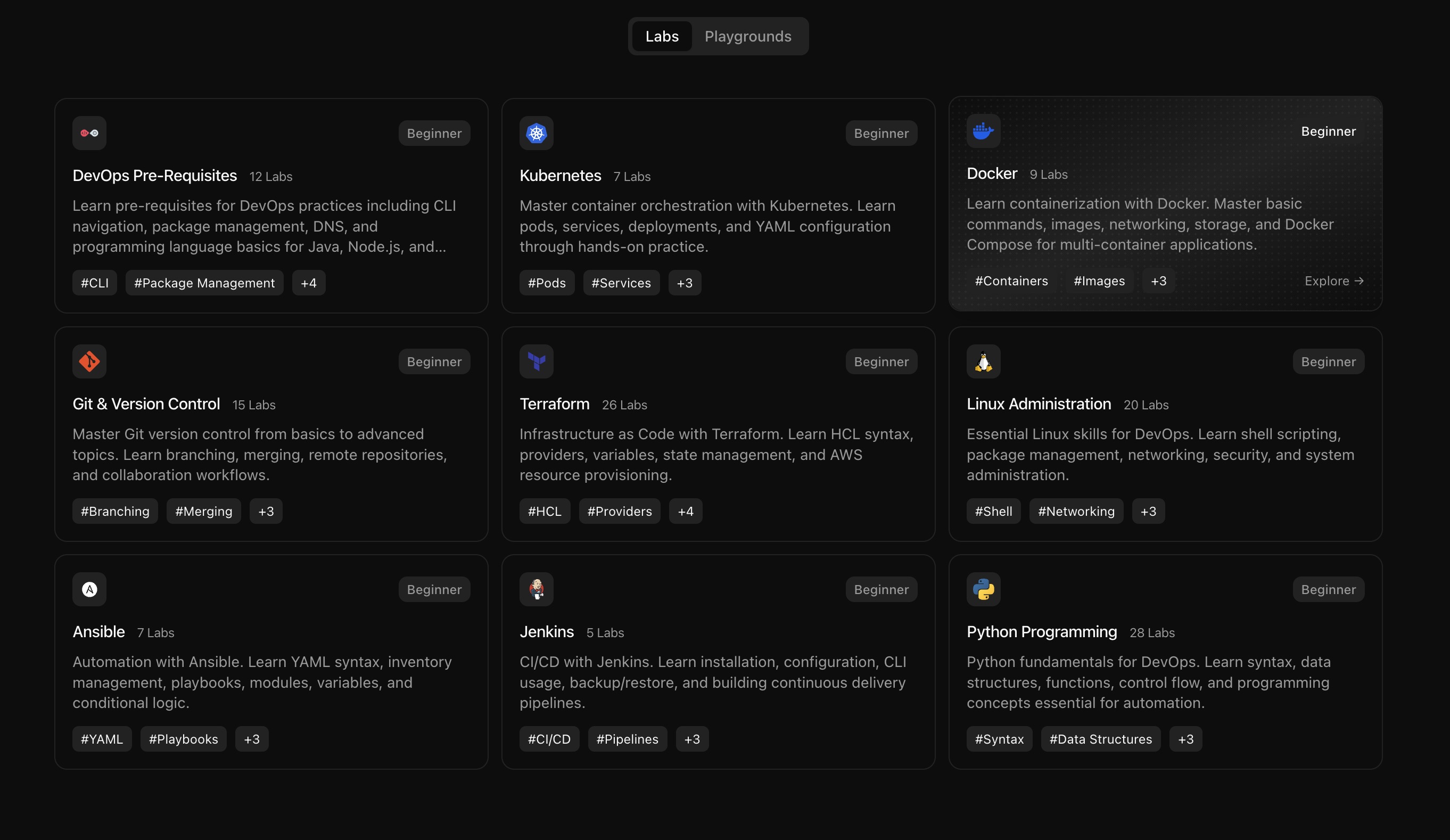
🎯 Pro Tip: Use the free labs alongside KodeKloud’s YouTube tutorials - it’s the perfect “watch + practice” combo to solidify what you learn instantly.
2. Bite-Sized Email Courses - Learn in 5 Minutes a Day
Not every lesson needs hours of screen time - sometimes, all you need is a few minutes a day to stay consistent.
That’s why KodeKloud offers bite-sized, email-based learning journeys - short, structured courses delivered straight to your inbox.
Each email course breaks down complex Kubernetes, Linux, and AI topics into simple, daily lessons you can complete during a coffee break. Every lesson comes with examples, visuals, and quick exercises, making it one of the easiest ways to build your DevOps foundation.
These courses are completely free and designed to help you learn progressively, even with a busy schedule.
Popular Email Learning Journeys Include:
- Kubernetes Made Simple - Daily Kubernetes fundamentals explained with visuals and labs.
- Linux Simplified for DevOps Engineers - Master the essentials of Linux commands and file systems. (This course is already being received by learners enrolled in the 100 Days of DevOps program.)
3. KodeKloud YouTube Channel - Learn by Watching, Practicing, and Exploring
KodeKloud’s official YouTube channel has become one of the internet’s most respected DevOps learning hubs.
Each video is crafted to teach complex concepts in a clear, story-driven, and visual way - often led by Mumshad Mannambeth and other experienced instructors.
Popular YouTube Playlists for Beginners:
- DevOps for Beginners Series - A crash course into the DevOps ecosystem.
- Docker for the Absolute Beginners - Learn Docker practically in under an hour.
- Kubernetes Crash Course - Get a fast, hands-on introduction to Kubernetes essentials in just a few hours.
- Kubernetes Release Updates & Deep Dives - Stay up to date with each Kubernetes version.
- Linux Crash Course - Practice Real Commands in a Live Terminal
🎯 Pro Tip: Pair each video with the corresponding KodeKloud lab - it transforms passive watching into active doing.
4. Free eBooks for Deep Learning
KodeKloud’s free eBooks are designed like mini-courses - visual, engaging, and packed with examples.
They’re ideal for learners who prefer reading and reference material alongside hands-on practice.
Must-Read Free eBooks (2025 Collection):
- Kubernetes Made Easy: A Step-by-Step Guide for Beginners
- The Ultimate Guide to Cloud Career Growth
- DevOps for Absolute Beginners
- Cloud Cost Management Guide - FinOps for Beginners
- Kubernetes Adopotion & Maturity Model
- The DevOps Tools Guide
- A Guide to Becoming a Kubestronaut in One Year
Each eBook is written in simple language, filled with visuals, and structured for learners at different levels - beginner, advanced beginner, and intermediate.
5. Infographics and Quick Visual Guides
If you love learning visually, you’ll love KodeKloud’s growing library of infographics and visual explainers.
These visuals simplify complex DevOps and Cloud concepts into clean, easy-to-understand illustrations - helping you grasp topics in minutes, not hours.
Instead of spending hours deciphering documentation, you can now explore the Open DevOps 101 Repository, a free, community-driven hub of KodeKloud’s curated visual guides, cheat sheets, and explainers.
Each infographic in the repository covers a core DevOps or Cloud topic - from CI/CD and Kubernetes fundamentals to security layers and toolchains - all designed to make complex concepts instantly understandable.
📘 Explore here: Open DevOps 101 Repository
🎯 Pro Tip: Bookmark the repo - it’s constantly updated with new infographics and visuals aligned with the latest KodeKloud courses and DevOps trends.
You can find these regularly shared on KodeKloud’s LinkedIn page and official blog.
Each infographic doubles as a reference guide you can print, save, or share while studying.
6. KodeKloud Blog - Real Insights from DevOps Experts
The KodeKloud Blog is a goldmine for learners who want to go beyond tools and understand how DevOps works in the real world.
It covers everything from technical deep dives to career advice and trend analysis.
Popular Blog Topics:
- What Is DevOps? (The 2025 Beginner’s Guide)
- Best DevOps Courses in 2025 : Learning Paths to Boost Your Career
- Certifications in DevOps : Which are Worth Your Time in 2025
- Still not Job-Ready After Learning DevOps? Free 100 Days of DevOps Challenge
- Kubernetes Basics in a Week
Each blog blends concept clarity, real examples, and KodeKloud course references, so you always know where to go next.
7. Community, Discord, and Challenges
DevOps isn’t just about learning tools - it’s about learning with people.
That’s why KodeKloud has built an active community of learners and professionals across Discord, LinkedIn, and the KodeKloud Engineer platform.
- Join community challenges like “100 Days of DevOps”, "Become a Kubestronaut in 2025 with Mumshad" and “Become a Golden Kubestronaut in a Year”
- Get feedback, collaborate, and showcase your work.
- Participate in live events and webinars featuring real DevOps experts.
Whether you’re debugging your first Kubernetes pod or preparing for the CKA exam, you’ll find someone who’s already been there - and can help.
The Smart Way to Learn for Free
Even if you never purchase a course, you can still follow a structured path using KodeKloud’s free ecosystem:
- Start with YouTube tutorials.
- Read the matching eBook or infographic.
- Practice using free KodeKloud labs.
- Share progress in the discord community.
That’s how thousands of learners have transitioned from curious beginners to job-ready engineers - completely through free resources.
The Kubeastronaut Journey: From Beginner to Kubernetes Pro
Every DevOps journey eventually leads to one destination - Kubernetes.
It’s the backbone of modern cloud-native systems and the skill that separates entry-level engineers from top-tier DevOps professionals.
But Kubernetes can look intimidating at first - YAML files, pods, deployments, clusters, networking, and dozens of other terms.
That’s why KodeKloud created something extraordinary:
🎯 The Kubeastronaut Journey - a step-by-step Kubernetes certification roadmap designed to take you from complete beginner to certified Kubernetes professional.
What Is the Kubeastronaut Journey?
The Kubeastronaut Journey is KodeKloud’s complete learning framework for mastering Kubernetes and its related certifications, following the CNCF’s official Kubernetes certification path.
Each stage builds on the previous one - starting from foundational concepts (KCNA) and progressing toward specialized, expert-level certifications (like CKS and KCSA).
You don’t just study - you build, break, and secure real Kubernetes clusters in hands-on labs at every stage.
Stage 1: KCNA - Kubernetes and Cloud Native Associate
Goal: Understand the fundamentals of Kubernetes, containers, and cloud-native technologies.
This is your first step if you’re completely new to the cloud-native world.
It covers containerization basics, orchestration concepts, and how Kubernetes fits into the broader DevOps ecosystem.
KodeKloud Course: Kubernetes and Cloud Native Associate (KCNA)
- What You’ll Learn: Containers, microservices, observability, security basics, and open-source tooling.
- Hands-On Practice: KCNA interactive labs on Docker, Pods, and Services.
- Tip: Pair this with the Kubernetes Made Easy eBook for visual understanding.
Stage 2: CKA - Certified Kubernetes Administrator
Goal: Learn how to build, manage, and troubleshoot Kubernetes clusters like a pro.
This certification makes you a real cluster operator. You’ll work with core components - API Server, etcd, scheduler, controller manager - and learn cluster management end to end.
- KodeKloud Course: Certified Kubernetes Administrator (CKA)
- What You’ll Learn: Deployments, networking, logging, troubleshooting, and cluster security.
- Labs: Create clusters, configure services, debug workloads, and set up Role-Based Access Control (RBAC).
Pro Tip: The KodeKloud CKA labs simulate the real exam environment - ideal for hands-on practice before the exam.
Stage 3: CKAD - Certified Kubernetes Application Developer
Goal: Master the developer’s perspective in Kubernetes.
While CKA focuses on cluster management, CKAD helps you understand how applications run inside Kubernetes.
You’ll learn about Pods, Deployments, ConfigMaps, Secrets, and Helm - everything a DevOps engineer needs to deploy and manage applications at scale.
- KodeKloud Course: Certified Kubernetes Application Developer (CKAD)
- What You’ll Learn: Pod design, rolling updates, debugging, and resource management.
- Bonus: KodeKloud’s labs come with visual explainers that show how each Kubernetes object connects to others.
Stage 4: CKS - Certified Kubernetes Security Specialist
Goal: Learn how to protect clusters and workloads against attacks.
This certification goes deep into the security layers of Kubernetes, covering network policies, RBAC, Pod Security Standards, and runtime protection.
It’s perfect for anyone aiming to specialize in DevSecOps or Kubernetes hardening.
- KodeKloud Course: Certified Kubernetes Security Specialist (CKS)
- What You’ll Learn: Secure cluster configuration, image scanning, and auditing.
- Free Resource: Kubernetes Security Frameworks Simplified + Security Layers Infographic
Pro Tip: Pair your CKS learning with KodeKloud Engineer’s security scenarios - they’re perfect real-world practice labs.
Stage 5: KCSA - Certified Kubernetes Security Associate
Goal: Understand Kubernetes security from a compliance and governance perspective.
The KCSA certification (introduced in 2024) is designed for those who want to understand security frameworks, compliance, and automation within Kubernetes clusters.
It bridges the gap between technical hardening and compliance standards like NIST, CIS, and ISO.
- KodeKloud Course: Kubernetes and Cloud Native Security Associate
- What You’ll Learn: Threat modeling, compliance frameworks, automation strategies.
- Free Resource: Avoid Issues I Faced Securing Kubernetes Workloads : Learn with KCSA
Why the Kubeastronaut Journey Works
Each certification builds on real-world tasks. By the time you finish all five, you won’t just “know Kubernetes” - you’ll think like a cloud-native engineer.
You’ll be able to:
- Deploy and manage clusters across any environment.
- Secure and monitor workloads.
- Automate deployments and enforce compliance.
- Confidently work on cloud-native DevOps teams.
And yes - you’ll officially earn your title as a Kubeastronaut, ready to conquer any Kubernetes or DevOps challenge in 2025 and beyond.
DevOps Career Launchpad: From Learning to Earning
You’ve learned the tools. You’ve practiced in real environments.
Now comes the most exciting part - turning your skills into career opportunities.
DevOps is one of the most in-demand and high-paying tech fields in 2025, but recruiters aren’t just looking for certificates - they want proof of real, hands-on experience.
That’s where KodeKloud gives you a unique advantage.
1. Build a Portfolio That Speaks for You
A certificate shows you’ve studied. A portfolio shows you can do.
KodeKloud’s platform makes it easy to build a project portfolio that demonstrates your real-world abilities. Each course and lab you complete leaves you with a trail of tangible outcomes you can showcase on your resume or GitHub profile.
Portfolio-Worthy Projects You Can Build:
- Docker-based microservice apps
- Kubernetes deployments with Ingress and Secrets
- Ansible automation for cloud provisioning
- Jenkins CI/CD pipelines
- Infrastructure as Code projects using Terraform and AWS
Pro Tip: Add every completed KodeKloud lab or challenge as a GitHub project with documentation.
2. Freelancing: Your First Real DevOps Projects
What if you could apply what you learned right now, even before landing your first full-time job?
That’s where freelancing becomes your training ground.
Freelancing allows you to gain real-world experience, build confidence, and earn side income - all while improving your technical and client-facing skills.
KodeKloud’s practical labs give you the kind of knowledge you can immediately apply in freelancing marketplaces like Upwork, Fiverr, or Toptal.
Real Freelance-Ready Skills from KodeKloud:
- Setting up CI/CD pipelines
- Automating server configurations
- Deploying containerized apps
- Migrating apps to Kubernetes
- Monitoring and troubleshooting production systems
And if you want a structured approach to freelancing in the IT world, check out “Freelancing vs Full-Time Job for DevOps Engineers : IT’s Private Practice” - a blog that walks you through how IT professionals can start, grow, and balance freelancing while working full-time.
Lesson Insight: Start small, deliver consistently, and treat every project as a reference point for your next opportunity.
3. Prepare for DevOps Interviews the Smart Way
KodeKloud doesn’t just teach tools - it helps you prepare for real-world interviews.
You can test your readiness with mock exams, scenario-based labs, and interview-style challenges through KodeKloud Engineer.
Interview Readiness Tips:
- Review your fundamentals - Linux, Git, and networking questions are always asked.
- Practice deploying applications in Kubernetes using KodeKloud’s live labs.
- Understand CI/CD workflows and automation pipelines conceptually, not just by tool.
- Use the KodeKloud Interview Prep Course, and Blogs for quick revision before interviews.
🎯 Goal: Be able to explain why you chose certain configurations or tools - that’s what employers love to hear.
4. Certifications That Boost Your Resume
While hands-on skills matter most, certifications validate your expertise and help you stand out in crowded applicant pools.
KodeKloud prepares you for the world’s top DevOps certifications - complete with interactive labs and mock exams that simulate the real test environment.
Top Certifications You Can Earn via KodeKloud:
- Linux Foundation Certified IT Associate (LFCS)
- Kubernetes Certifications (KCNA, CKA, CKAD, CKS, KCSA)
- HashiCorp Certified Terraform Associate
- Docker Certified Associate (DCA)
- AWS Certified Cloud Practitioner
Each certification comes with real practice labs, so you’re not memorizing - you’re mastering.
5. Join a Network That Keeps You Growing
Once you’re job-ready, the next step is staying updated and connected.
KodeKloud’s community-driven ecosystem - from Discord to webinars and challenges - ensures you keep learning from real engineers worldwide.
Ways to Stay Connected:
- Participate in #100DaysOfDevOps community challenges.
- Attend KodeKloud Webinars with industry experts.
- Follow KodeKloud AI updates to stay ahead of emerging DevOps automation trends.
Because DevOps isn’t a finish line - it’s a journey of continuous learning, collaboration, and curiosity.
From Learner to Professional
By the time you’ve reached this point in your KodeKloud journey, you’ll have:
- A portfolio of real projects.
- Hands-on experience with core DevOps tools.
- Certifications that validate your skill.
- A growing network of professionals and mentors.
In short: you won’t just be looking for DevOps jobs - DevOps opportunities will be looking for you.
Why KodeKloud Is the Best Platform to Learn DevOps in 2025
When it comes to learning DevOps, there’s no shortage of courses and tutorials online.
But very few platforms truly prepare you for how DevOps works in the real world.
That’s where KodeKloud rises above the rest.
In 2025, KodeKloud isn’t just a course provider - it’s a complete DevOps learning ecosystem.
It combines training, labs, challenges, certifications, and AI-powered assistance into one seamless platform designed for real engineers.
Let’s look at what makes KodeKloud the most powerful place to start (and grow) your DevOps career.
1. Hands-On Learning from Day One
Theory helps you understand what DevOps is.
Hands-on learning helps you understand how it works.
Every course on KodeKloud comes with interactive labs that run directly in your browser. You can practice Docker, Kubernetes, Jenkins, and Terraform - all without installing a single tool.
- No setup headaches.
- Real environments.
- Instant validation.
This hands-on-first approach ensures you never just memorize commands - you master concepts through action.
2. Step-by-Step Learning Paths
KodeKloud’s structured Learning Paths guide you through a complete journey - from beginner to job-ready engineer - in logical, progressive steps.
For example:
- DevOps Learning Path: Linux → Git → Ansible → Docker → Kubernetes → Terraform → CI/CD → Monitoring
- Kubernetes Learning Path: KCNA → CKA → CKAD → CKS → KCSA
- Cloud Learning Path: AWS → Azure → GCP → Terraform → Cloud Security
You’ll never wonder, “What should I learn next?” - every path is designed to help you move forward with confidence.
3. KodeKloud Engineer (KKE): Real-World DevOps Scenarios
While courses teach you how things work, KodeKloud Engineer teaches you how to solve problems.
It’s a one-of-a-kind DevOps simulation platform where you handle real-world tasks - setting up servers, troubleshooting Kubernetes clusters, fixing pipelines, and managing deployments.
You’ll get:
- Scenario-based challenges.
- Production-like environments.
- Automated feedback and scoring.
In other words, it’s your DevOps internship - built right into your browser.
4. KodeKloud AI: Personalized, Verified Learning
AI is redefining how we learn - and KodeKloud is leading that transformation.
Introducing KodeKloud AI, a next-generation, hands-on learning ecosystem powered by intelligent assistance and personalization.
AI Assistant: Your Personal Lab Guide
Get real-time feedback and guidance right inside your labs.
The AI Assistant helps you troubleshoot, explains complex concepts in simple terms, and walks you through every step - just like a friendly mentor sitting beside you.
AI Tutor: Personalized Learning Tailored to You
Meet the world’s first AI-driven personalized hands-on tutor.
The AI Tutor adapts to your progress, creating a custom learning path for any DevOps or Cloud topic. It ensures every lab sequence builds on what you’ve already mastered, keeping you always on the right track.
Multi-Lingual Support
Breaking barriers in global education - KodeKloud AI lets you learn in your own language. Chat with the AI in any language, and it responds fluently in the same one.
This is truly learning without borders.
AI-Powered Courses
Dive into a growing collection of AI-enhanced courses, from personalized AI tutoring to specialized certifications like AI-Assisted Development and AI-900: Microsoft Azure AI Fundamentals.
Each course integrates seamlessly with the KodeKloud AI ecosystem, combining human expertise with AI-driven personalization.
AI-102 : Microsoft Certified Azure AI Engineer Associate
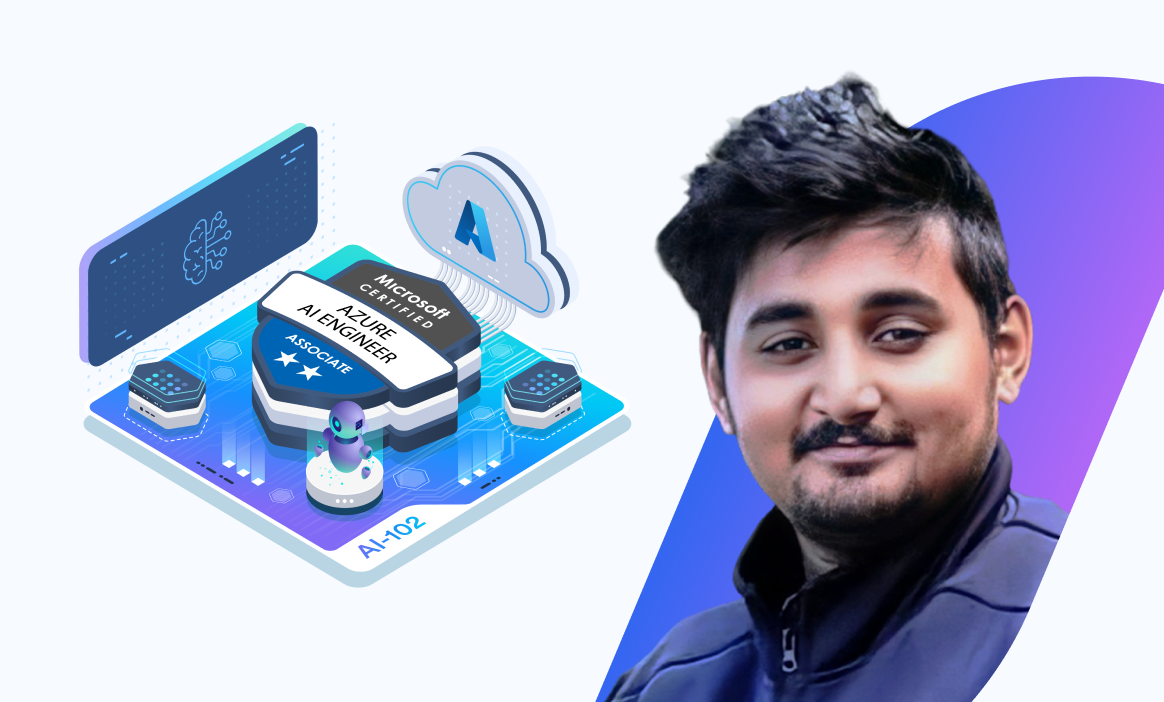
Introduction to K8sGPT and AI-Driven Kubernetes Engineering
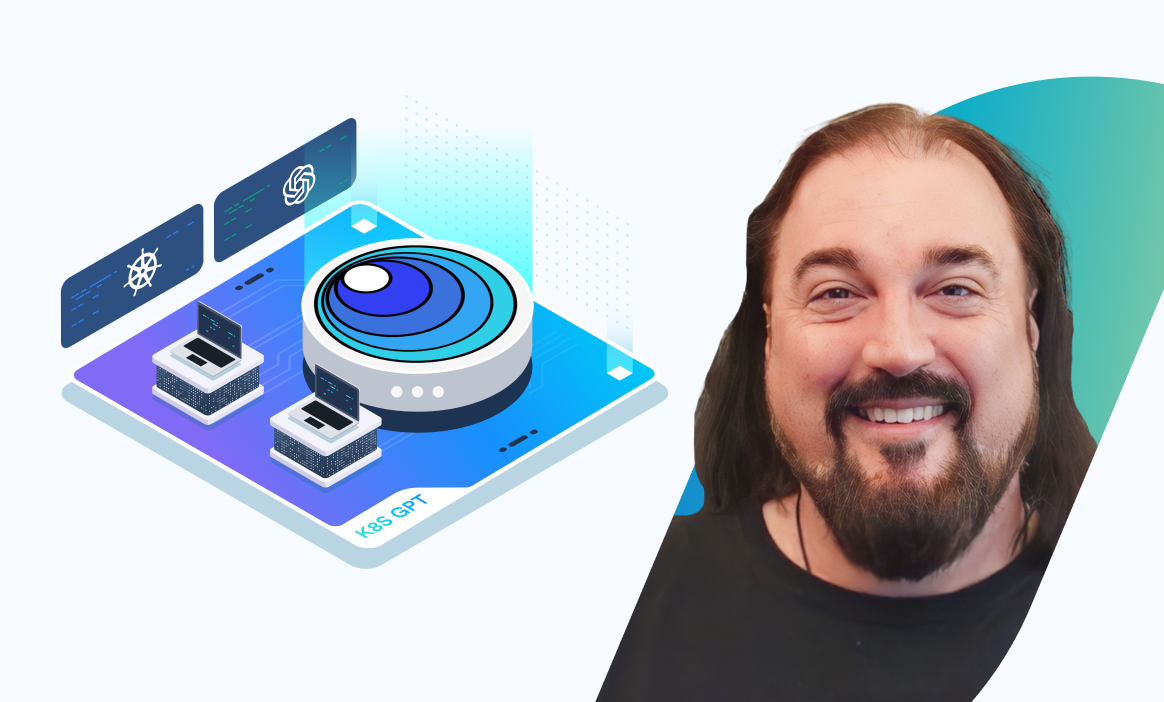
LangChain
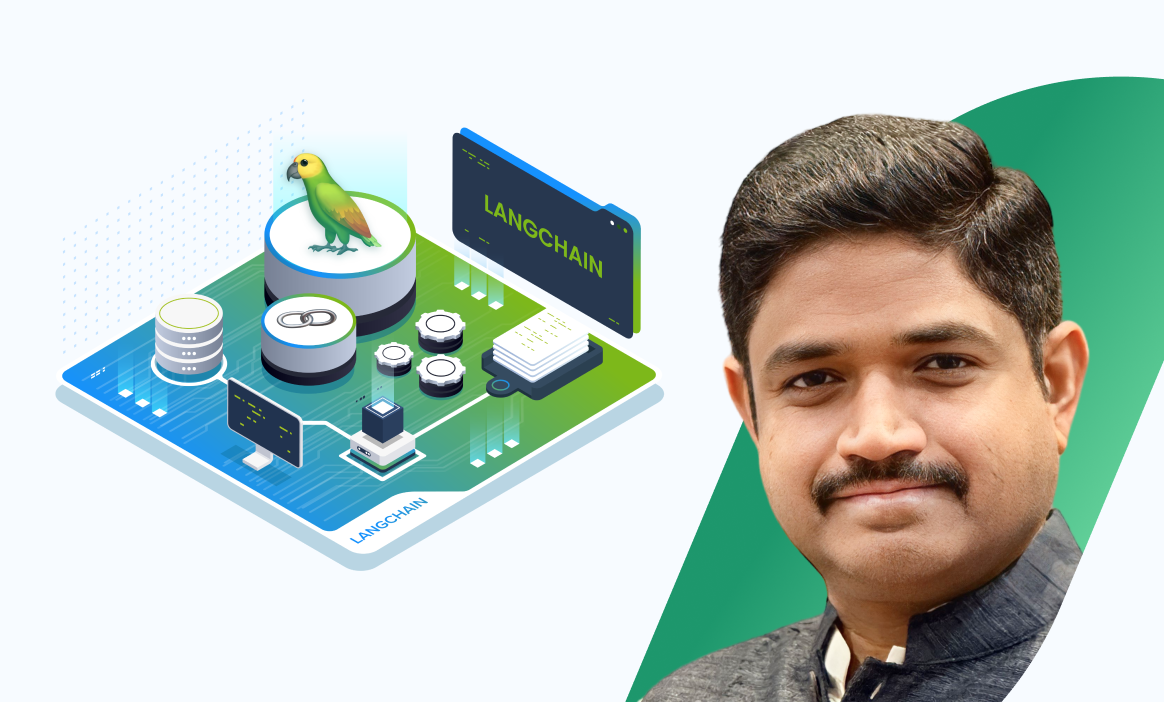
AI Agents
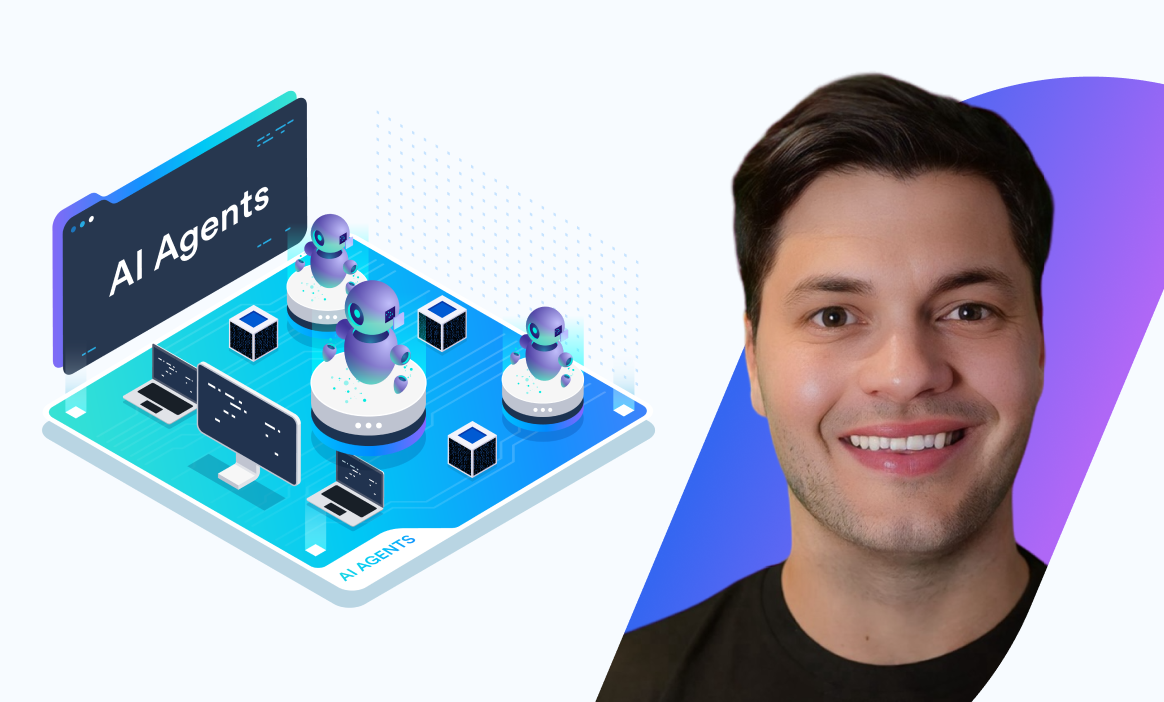
5. Community and Collaboration
KodeKloud isn’t just a platform - it’s a global DevOps community.
Thousands of learners, professionals, and instructors share knowledge daily through:
- Discord communities
- Weekly challenges
- Live webinars
- LinkedIn posts and blog discussions
You can ask questions, share projects, and learn from real engineers who’ve walked the same path you’re on.
This community aspect transforms your learning from solo study into a collaborative experience - one that keeps you inspired and accountable.
6. Constantly Updated, Future-Focused Content
Technology doesn’t stand still - and neither does KodeKloud.
The platform’s content team constantly updates courses and labs to match the latest Kubernetes releases, DevOps trends, and cloud tools.
That means what you’re learning isn’t last year’s material - it’s what the industry is using right now.
Why Learners Love KodeKloud
“KodeKloud helped me land my first DevOps job in under six months.”
“The labs are insanely good - you actually learn by doing, not watching.”
“After completing the CKA and CKS courses on KodeKloud, I finally feel confident leading Kubernetes deployments at work.”

In Summary
KodeKloud gives you everything you need to build a DevOps career:
- Structured learning paths
- Hands-on labs
- AI-powered assistants
- A thriving community
- Certification readiness
It’s not just another e-learning platform - it’s where future DevOps engineers are made.
Summary: Start Your DevOps Journey Today
You’ve just explored the complete roadmap to mastering DevOps in 2025 - from learning Linux and Git to deploying Kubernetes clusters and automating infrastructure in the cloud.
You’ve also seen how KodeKloud simplifies this journey, turning theory into action through hands-on labs, guided paths, and real-world projects that prepare you for the jobs of tomorrow.
Let’s recap what you’ve learned in this guide:
Your Step-by-Step DevOps Learning Path
You now know the right sequence to follow:
- Start with Linux and Git - build your foundation.
- Learn Scripting and Networking - understand automation and communication.
- Dive into Docker and Kubernetes - containerize and orchestrate real applications.
- Automate with Ansible - manage infrastructure efficiently.
- Master CI/CD and Cloud Platforms - deploy continuously and scale globally.
- Focus on Security, Monitoring, and Observability - operate with confidence.
Each step connects to a real-world skill and a matching KodeKloud course or lab, ensuring your learning never loses direction.
Why KodeKloud Is the Ultimate Platform
Unlike traditional video-based courses, KodeKloud empowers you to learn by doing:
- Practice in real environments directly in your browser.
- Follow structured learning paths built by industry experts.
- Test yourself with KodeKloud Engineer (KKE) challenges.
- Explore AI-powered tools like AI Assistant, AI tutor, etc
- Join a global community of engineers, mentors, and learners.
When you combine all this, you’re not just watching DevOps tutorials - you’re living the DevOps experience.
Your Next Step: Start Today
If you’ve made it this far, you already have what it takes to begin.
All you need is the right platform - and the curiosity to keep going.
So here’s your action plan for today:
- Create your free KodeKloud account.
- Start with the Linux for Beginners or Docker for Absolute Beginners course.
- Commit to learning one concept a day using KodeKloud Labs.
- Join the Kubeastronaut Journey and earn your first certification.
- Share your progress with the community - and inspire others.
Every expert DevOps engineer started where you are right now: uncertain, curious, and ready to take the first step.
Final Thought
The world is moving toward AI-driven, cloud-native automation, and DevOps sits at the heart of it.
By learning DevOps the right way - with hands-on practice, structured guidance, and real-world experience - you’re not just keeping up with the industry.
You’re shaping its future.
So don’t wait another day.
Start your journey, one lab at a time, and build the skills that companies around the world are looking for.
👉 Start learning DevOps with KodeKloud - because the best way to learn DevOps… is to do DevOps.
FAQ
What is DevOps, and why should I learn it in 2025?
DevOps is a set of practices that combine software development and IT operations to deliver applications faster, more securely, and more reliably. In 2025, nearly every company - from startups to enterprises - relies on DevOps for automation, scalability, and cloud-native deployments. Learning DevOps now gives you a competitive edge in one of the most in-demand tech roles.
Can beginners learn DevOps without coding experience?
Absolutely. DevOps welcomes beginners from all backgrounds - system administrators, testers, or even non-technical professionals. While basic scripting helps, you can start with Linux, Git, and simple Bash commands on KodeKloud and gradually move toward automation and containerization at your own pace.
What is the best way to learn DevOps in 2025?
The most effective way is learning by doing. Instead of watching hours of lectures, practice in real environments using platforms like KodeKloud, where every concept - from Docker to Kubernetes - is taught through interactive labs. Start small, build projects, and apply what you learn daily.
How long does it take to become a DevOps Engineer?
On average, with consistent learning (5-10 hours per week), most learners become job-ready in 6-9 months. KodeKloud’s structured learning paths and Kubeastronaut Journey help you progress efficiently - covering Linux, Docker, Kubernetes, Ansible, CI/CD, and cloud fundamentals step by step.
Which DevOps tools should beginners focus on first?
Start with the fundamentals:
- Linux - for command-line and system basics
- Git - for version control
- Docker - for containers
- Kubernetes - for orchestration
- Ansible - for automation
Once comfortable, move to CI/CD tools (Jenkins, GitHub Actions), Cloud (AWS, Azure), and Monitoring(Prometheus, Grafana).
Are KodeKloud’s DevOps courses beginner-friendly?
Yes! KodeKloud’s entire ecosystem is built for beginners. Each topic starts from scratch with video explanations, step-by-step labs, and guided practice scenarios. You don’t need prior DevOps knowledge - just curiosity and consistency.
Do I need a powerful computer to use KodeKloud labs?
No - that’s the best part. KodeKloud’s labs run entirely in your browser, meaning all heavy computation happens on their servers. You can learn DevOps using even a basic laptop or Chromebook without installing any tools.
What certifications can I prepare for with KodeKloud?
KodeKloud covers the world’s top DevOps and Kubernetes certifications:
- KCNA, CKA, CKAD, CKS, KCSA
- Docker Certified Associate (DCA)
- Terraform Associate
- AWS Certified Cloud Practitioner
- Linux Foundation LFCA
Each course includes hands-on labs and mock exams that mirror real certification environments.
Is KodeKloud free or paid?
KodeKloud offers both free and premium plans.
- Free learners can access selected labs, YouTube lessons, eBooks, and community challenges.
- The paid plan unlocks unlimited labs, complete learning paths, and certification courses - ideal for serious learners preparing for jobs or certifications.
Can I get a DevOps job after completing KodeKloud courses?
Yes - many learners have landed jobs as DevOps Engineers, Cloud Engineers, and SREs after completing KodeKloud’s hands-on courses and projects. By showcasing your KodeKloud labs, certifications, and portfolio projects on GitHub or LinkedIn, you can stand out in interviews and freelance marketplaces.
What makes KodeKloud different from platforms like Udemy or Coursera?
While most platforms focus on video-based learning, KodeKloud focuses on hands-on experience.
- You learn in real sandbox environments, not simulations.
- Every course is created by industry experts with production-level examples.
- You can practice DevOps tasks in-browser, get instant feedback, and even simulate job-like challenges through KodeKloud Engineer.
How do I stay consistent while learning DevOps?
Follow a structured routine:
- Learn one concept per day.
- Practice that concept in a KodeKloud lab.
- Document your progress on GitHub or LinkedIn.
- Engage with the KodeKloud community for accountability.
Even 45 minutes of consistent practice daily is better than binge-learning once a week.
What is the Kubeastronaut Journey?
The Kubeastronaut Journey is KodeKloud’s official Kubernetes learning path. It includes all major Kubernetes certifications - KCNA → CKA → CKAD → CKS → KCSA - guiding you from beginner to advanced security and compliance mastery. Completing it means you’re fully cloud-native ready.
Does KodeKloud teach DevSecOps and AI in DevOps?
Yes! KodeKloud’s Kubernetes Security Associate (KCSA) course and AI in DevOps 2025 eBook cover emerging practices in automation, compliance, and intelligent monitoring. You’ll learn how AI, policy enforcement, and security automation are reshaping DevOps in modern enterprises.
Where should I start if I’m completely new to DevOps?
Start small.
- Take the Linux for Beginners course.
- Learn Git for version control.
- Then move on to Docker for the Absolute Beginner.
Once you’re comfortable, dive into Kubernetes for Beginners, and your DevOps journey will be well underway - all within KodeKloud.


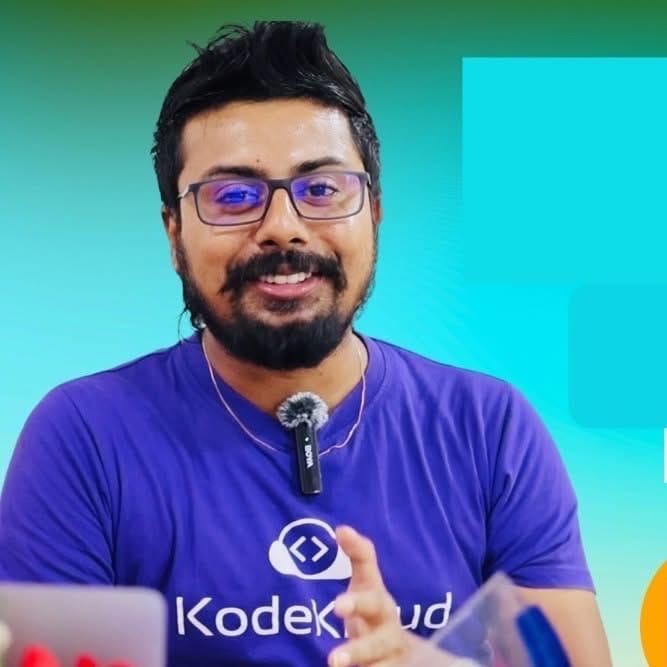
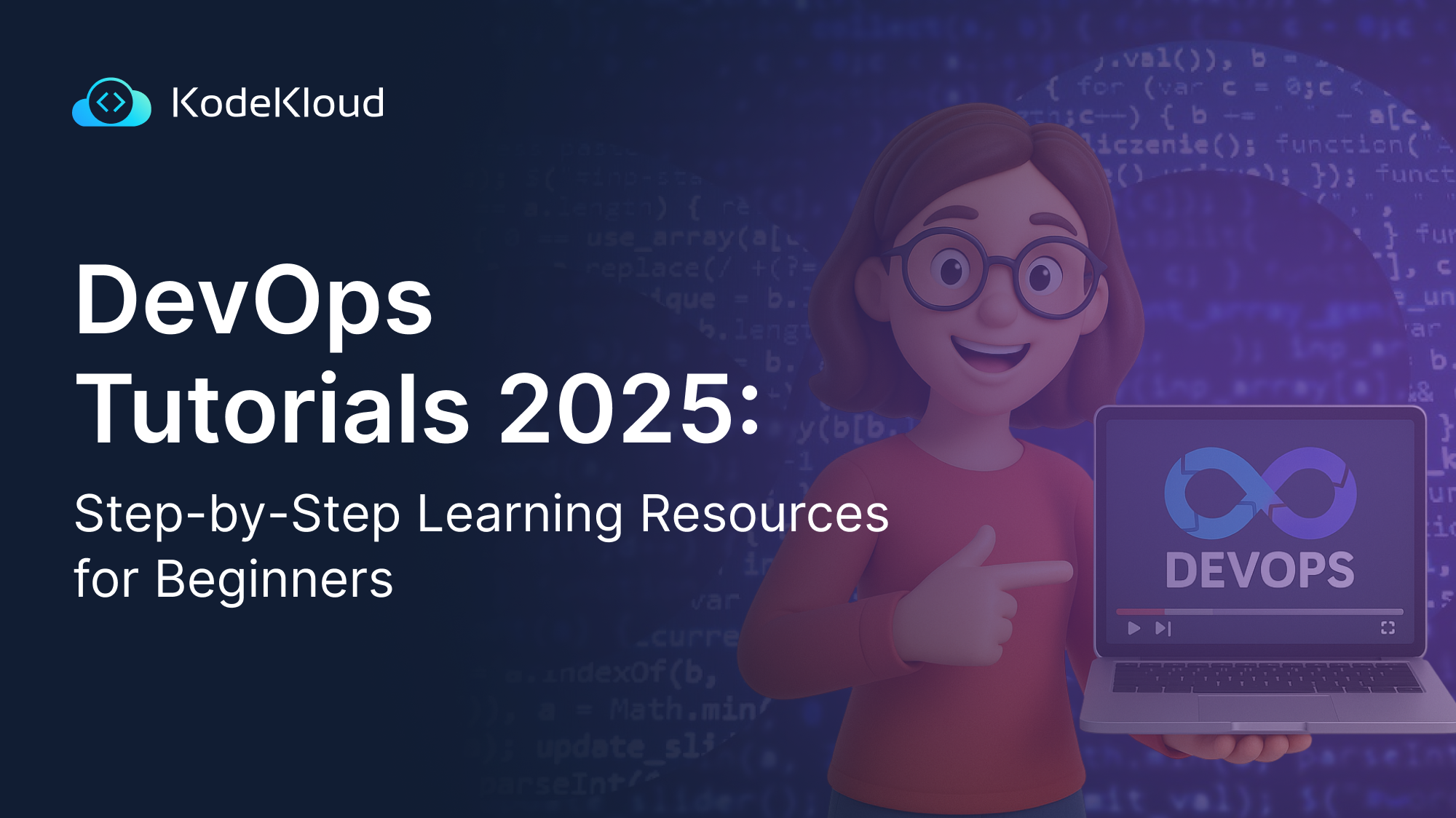






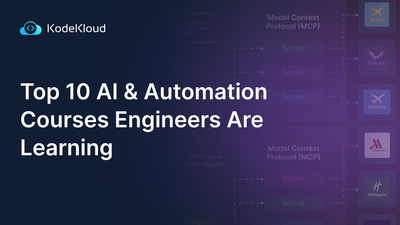
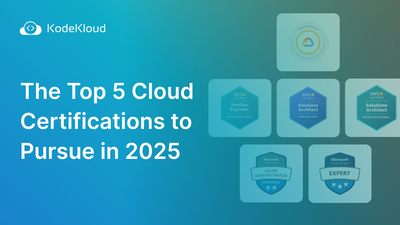
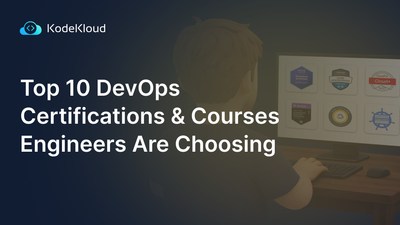
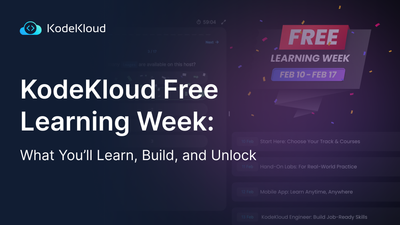
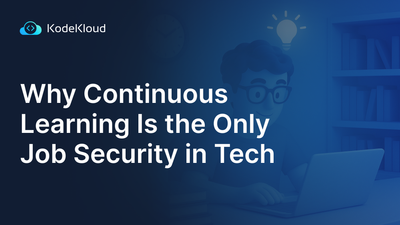
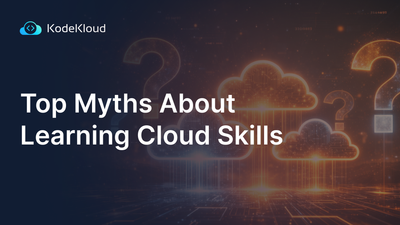
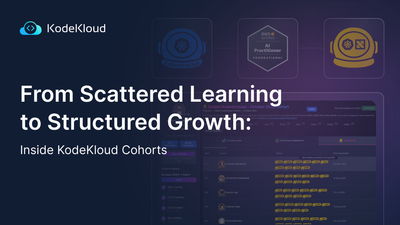
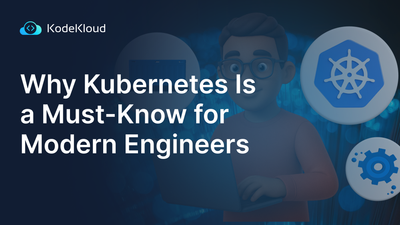

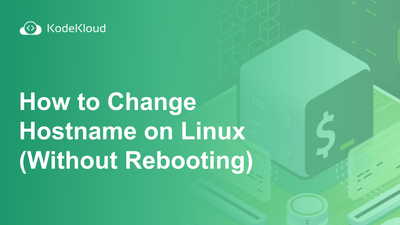

Discussion